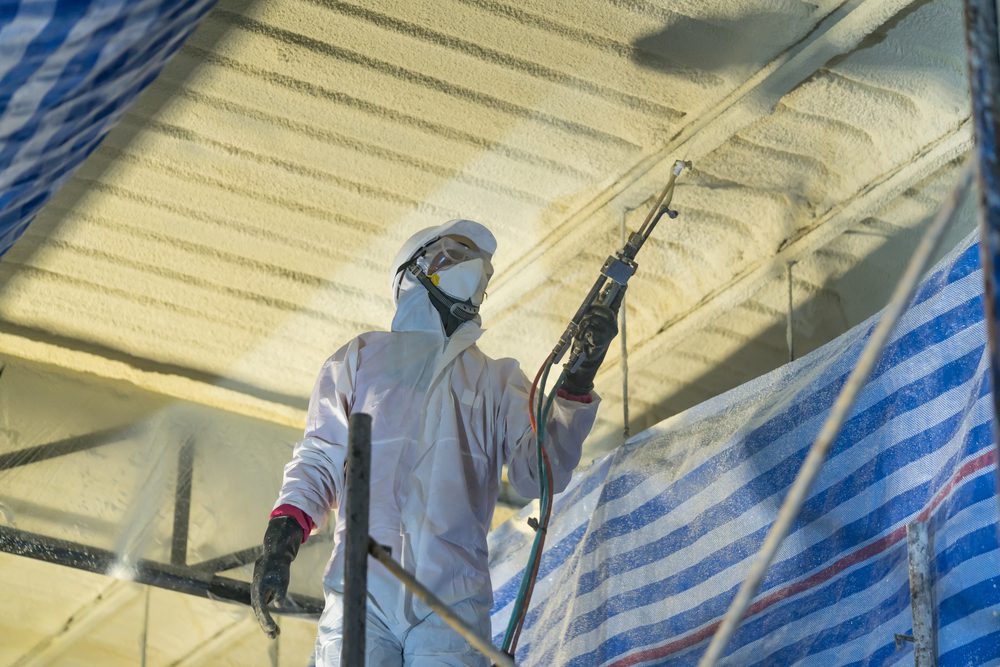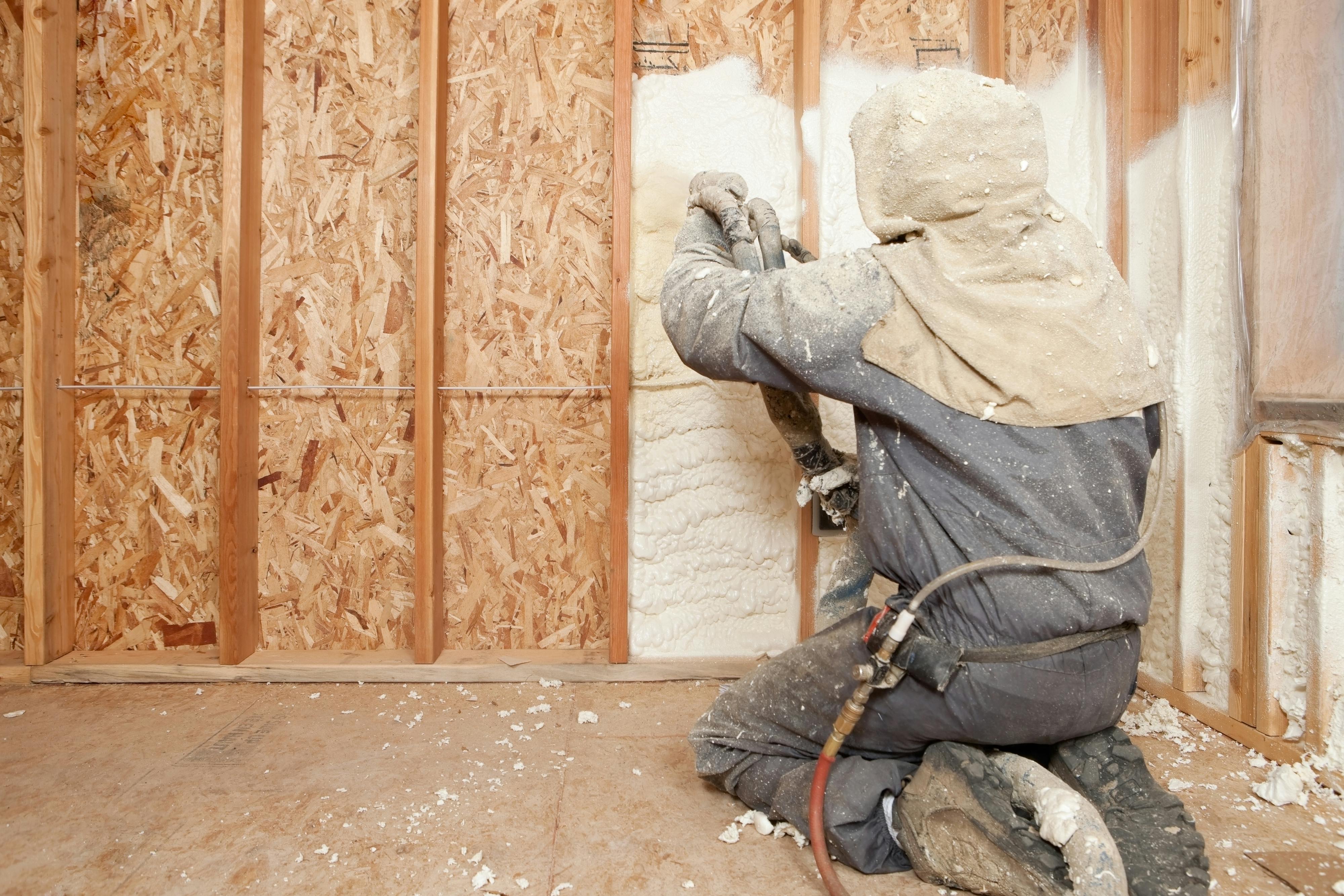Spray foam insulation transforms any building into a more comfortable, energy-efficient, and durable space. Selecting the right spray foam insulation company ensures your building handles heat, cold, and humidity effectively. Relying on trusted spray foam insulation contractor in Wichita, KS guarantees an airtight seal that improves energy efficiency and indoor comfort while protecting your structure for years to come.
This guide delivers practical, experience-driven insights into spray foam insulation types, important factors to weigh before making decisions, and detailed descriptions of various insulation services. It is designed to help property owners and builders make informed choices that maximize building performance and longevity, especially for Wichita KS unique climate.
Spray Foam Insulation and Its Role in Wichita’s Climate
Wichita’s climate combines hot, humid summers with cold winters. Proper insulation must handle this range without compromising moisture control or thermal protection. Spray foam insulation excels here because it seals cracks and cavities tightly, reducing drafts and energy loss.
Choosing between open-cell and closed-cell foam depends on the area being insulated and the building’s needs:
| Spray Foam Type | Description | R-Value per Inch | Typical Uses | Key Benefits |
|---|---|---|---|---|
| Open-Cell Spray Foam | Soft, low-density foam that expands widely and is vapor permeable | 3.6 to 3.8 | Interior walls, attics, ceilings | Allows moisture escape, soundproofing, cost-effective |
| Closed-Cell Spray Foam | Dense, rigid foam that acts as a vapor barrier and strengthens structures | 6.0 to 7.0 | Exterior walls, roofs, metal buildings | High insulation value, moisture barrier, adds structural integrity |
| Metal Building Spray Foam | Specialized closed-cell foam designed for metal roofs and frames | 6.0 to 7.0 | Metal buildings, pole barns | Prevents condensation and corrosion |
| Duct Spray Foam Insulation | Foam applied directly to HVAC ducts to improve efficiency | Varies | HVAC systems | Reduces energy loss, seals leaks |
Closed-cell foam’s strength and moisture resistance suit Wichita’s fluctuating humidity and temperature extremes. Open-cell foam works well indoors where breathability and sound dampening are priorities. Understanding these differences helps align insulation with building performance goals.
Bonus Tip
Using closed-cell foam on exterior walls or roofs can reduce risks of moisture damage and improve resistance to wind and hail, common in Kansas storms.
Comprehensive Spray Foam Insulation Services
Each building project requires a tailored insulation approach. The following services cover a broad range of applications to fit specific needs:
Open-Cell Spray Foam Applied primarily indoors, this foam expands to fill cavities, providing effective thermal insulation while allowing vapor permeability. It improves soundproofing and is cost-effective for residential projects.
Closed-Cell Spray Foam Used where moisture resistance and structural support are critical, this foam creates a rigid barrier that strengthens walls and roofs. It delivers high R-values suitable for exterior insulation and metal buildings.
Metal Building Spray Foam Designed specifically for metal structures, this closed-cell foam prevents condensation and corrosion, extending the lifespan of barns, warehouses, and commercial metal buildings.
Pole Barn Spray Foam Applied to agricultural buildings, this foam offers protection against temperature extremes and moisture, preserving stored equipment and livestock comfort.
Residential Spray Foam Insulation Tailored for homes, this service enhances energy efficiency, reduces drafts, and increases indoor comfort throughout the year.
New Construction Spray Foam Installing spray foam during the early stages of construction ensures a continuous air barrier and high thermal performance for the entire building envelope.
Commercial Spray Foam Custom insulation solutions for offices, retail spaces, and industrial facilities focus on energy savings, durability, and compliance with building codes.
Spray Foam Air Barriers These air barriers seal gaps and cracks to prevent air leakage, improving HVAC performance and indoor air quality.
Duct Spray Foam Insulation Applying foam to ductwork seals leaks and insulates, cutting energy waste and maintaining consistent airflow.
Metal Roof Restoration This service revitalizes aging metal roofs by adding protective coatings and insulation, extending roof life and improving energy performance.
Roof Restoration Spray foam and coating solutions restore roof integrity, improve insulation, and protect against leaks and weather damage.
Agricultural Spray Foam Insulation This application protects barns, silos, and storage buildings from moisture, temperature fluctuations, and pests, helping maintain the quality of agricultural products.
CMU Blocks Filling Spray foam fills hollow concrete masonry units (CMUs), enhancing insulation, structural strength, and moisture control.
HomeInsulation Complete insulation strategies tailored to homes to optimize comfort, reduce energy use, and lower environmental impact.
Commercial Insulation Designed for large-scale commercial buildings, this insulation maximizes energy savings and meets regulatory standards for safety and efficiency.

Things to Consider Before Making a Decision
Choosing a trusted spray foam solution demands careful evaluation of several key factors. Start by understanding how your building’s design, climate, and use affect insulation needs. For instance, Wichita’s hot summers require insulation that limits heat gain while resisting moisture, making closed-cell foam a strong candidate for exteriors. Open-cell foam insulation services suit interior spaces that need sound control and breathability.
Assess the building’s air sealing needs thoroughly. Spray foam does more than insulate; it creates an effective air barrier that reduces drafts, improves indoor air quality, and enhances HVAC efficiency. Inspect the existing structure to identify leaks or gaps that require sealing.
Consider your long-term goals: durability, energy efficiency, and comfort. Closed-cell foam adds rigidity to walls and roofs, which can increase structural strength and help withstand Kansas weather challenges like wind and hail. Make sure professional installers follow safety standards to avoid indoor air quality issues during and after application.
Bonus Tip
Schedule a professional energy audit before installation. It helps pinpoint problem areas and tailor foam application to maximize results.
Common Questions About Spray Foam Insulation
What’s the best spray foam type for a home in Wichita? Closed-cell spray foam is best for exterior walls and roofs due to moisture resistance and insulation value. Open-cell works well for interior walls needing soundproofing and breathability.
How long does spray foam insulation last? With proper installation, spray foam can perform for decades without losing effectiveness.
Can spray foam reduce energy consumption significantly? Yes. By sealing air leaks and improving insulation, it reduces heating and cooling loads substantially.
Is spray foam insulation safe for indoor environments? Properly installed spray foam cures fully and is safe. Professional application minimizes any off-gassing risks.
Can spray foam insulation be used in agricultural buildings? Absolutely. It protects barns and storage areas from moisture, temperature swings, and pests.
Frequently Asked Questions
How does spray foam insulation affect ventilation? Spray foam creates an airtight seal. Proper ventilation systems are essential to maintain indoor air quality and prevent moisture buildup.
Can spray foam insulation be applied to existing buildings? Yes. It can be retrofitted in attics, walls, and crawl spaces to improve energy performance.
Will spray foam insulation help with noise reduction? Open-cell spray foam provides excellent sound dampening, reducing noise transmission between rooms.
Does spray foam insulation support green building standards? Spray foam enhances energy efficiency and can contribute to green certifications by lowering energy use and carbon footprint.
What maintenance does spray foam require? It requires little maintenance. Periodic inspections for damage or moisture intrusion help maintain performance.
Ready to Achieve Superior Comfort and Efficiency?
Arma Coatings of Wichita is a trusted spray foam insulation company serving Wichita, KS, known for delivering tailored insulation solutions that meet diverse building needs. With extensive expertise in both residential and commercial applications, the company offers a full range of services including open-cell and closed-cell spray foam, metal building insulation, roof restoration, and more. Their team of reliable spray foam professionals applies advanced techniques to enhance energy efficiency, comfort, and durability in every project. Contact [email protected] or call (316) 779-2430 to access expert guidance and high-quality insulation services that protect and optimize your building’s performance.
Reviewer
Charlotte King reviewed this article based on her 7 years of spray foam experience, contributing thoughtful advice about building customer relationships and improving local visibility…
